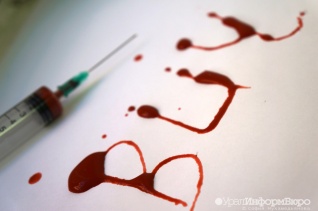Vladimir Putin’s health care “optimization,” a euphemism for drastic cuts, has contributed to what the UN agency responsible for combating HIV/AIDS into making Russia “an epicenter” of that epidemic, with infection rates now higher in the Russian Federation than they are in Uganda or Zimbabwe.
“Gazeta” journalists Elena Malysheva, Karina Romanova, and Petr Netreba say
that a new UNAIDS report shows that Russia “has become the country with the largest epidemic of HIV in the world” far surpassing “the majority of states.” But despite that, Moscow continues to cut back spending to combat this illness.
What is most worrisome, the UN agency says, is that the share of new cases of HIV infection continue to grow far more rapidly in Russia than in most other countries. In 2015, Russia had 11 percent more cases than it did a year earlier, 919,500 as compared to 824,000 in 2014. Most countries saw rates of growth of five to eight percent or much less.
As a result, measured by the rate of growth in the number of new cases, Russia surpassed Zimbabwe, Mozambique, Tanzania, Kenya and Uganda. It only compared favorably with countries like Nigeria which have a far larger number of people already infected and also a larger number of new cases.
The three “Gazeta
” journalists report that UNAIDS laid much of the blame for Russia’s poor performance on the fact that the World Bank reclassified Russia as a country with sufficient income to pay its own way in this sector. Unfortunately, they point out, Moscow has not made up for the loss of grants from abroad and indeed has cut medical care drastically.
As a result, only 37 percent of those the Russian government has identified as having HIV are receiving treatment. And if one compares the number treated to those estimated to be infected but not registered as such with the authorities, the share getting medical help is only 28 percent.
Moreover, in order to save money, the Russian government has ended early intervention in HIV cases, withholding help until symptoms appear, failing to combat widespread intravenous narcotics use by providing methadone, and cutting spending for imported medicines needed to fight HIV/AIDS.
Health Minister Veronika Skvortsova says that Moscow intends to boost spending in this area, but the numbers coming in from around the country undercut her claim. It is true that Moscow sent 17.485 billion rubles to the regions in 2015 and has cut that only by 44 million rubles in 2016.
But those figures are deceptive especially regarding the fight against HIV/AIDS because most of the anti-retro-viral drugs used are imported and the collapse of the ruble exchange rate against foreign currencies means that there is far less money for fighting this epidemic than Moscow officials admit.
Related:
- HIV/AIDS epidemic in Russia 'out of control,' health minister says
- Downward spiral: Russia now has more HIV/AIDS cases than all of Europe
- Putin government stopped fighting HIV/AIDS, Russia 'at the edge of generalized epidemic,' Pokrovsky says
- What the war in Ukraine and fight against AIDS have in common
- "Reposts are the Soviet anecdotes of today" and other neglected Russian stories

